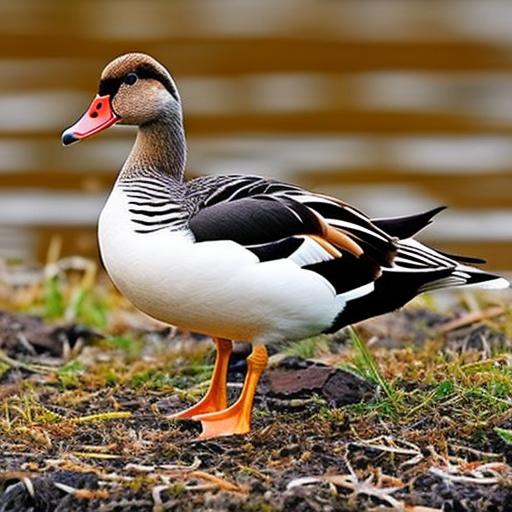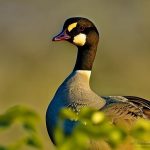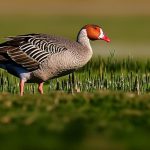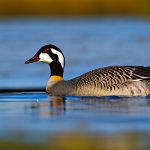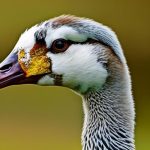Ducks and geese are popular domesticated birds that are raised for various purposes, including meat, eggs, feathers, and even as pets. There are numerous breeds of ducks and geese, each with its own unique characteristics and traits. Some breeds are better suited for egg production, while others are prized for their meat or ornamental qualities. Understanding the different breeds and their specific traits is essential for anyone considering raising ducks and geese.
Ducks and geese have been domesticated for thousands of years, and as a result, there are now hundreds of different breeds to choose from. Some of the most popular duck breeds include the Pekin, Mallard, Khaki Campbell, and Indian Runner. Each breed has its own distinct characteristics, such as size, color, and egg-laying abilities. Similarly, there are numerous goose breeds to choose from, including the Toulouse, Embden, Chinese, and African. Each breed of goose has its own unique traits and is suited for different purposes, whether it be meat production, egg-laying, or ornamental use. Understanding the various breeds of ducks and geese is the first step in choosing the right breed for your specific needs.
Choosing the Right Breed for Your Needs
When it comes to choosing the right breed of duck or goose for your needs, there are several factors to consider. First and foremost, you should consider the purpose for which you are raising ducks or geese. If you are primarily interested in egg production, you will want to choose a breed that is known for its prolific egg-laying abilities. On the other hand, if you are raising ducks or geese for meat production, you will want to select a breed that is known for its large size and meat quality. Additionally, if you are raising ducks or geese for ornamental purposes or as pets, you may want to choose a breed that is known for its unique and attractive appearance.
Another important factor to consider when choosing a breed of duck or goose is the climate and environment in which you live. Some breeds are better suited for cold climates, while others thrive in warmer environments. It is important to choose a breed that is well-adapted to your specific climate and will be able to thrive in your particular environment. Additionally, you should consider the space and housing requirements of the breed you are considering. Some breeds of ducks and geese require more space and specialized housing, while others are more adaptable and can thrive in a variety of environments. By carefully considering your specific needs and the traits of different duck and goose breeds, you can choose the breed that is best suited for you.
Understanding the Different Characteristics of Duck Breeds
Ducks are known for their diverse range of characteristics, including size, color, and egg-laying abilities. Some of the most popular duck breeds include the Pekin, which is known for its large size and prolific egg-laying abilities, and the Khaki Campbell, which is prized for its high egg production. Other popular duck breeds include the Indian Runner, which is known for its upright stance and unique appearance, and the Mallard, which is a wild duck species that is also commonly raised domestically. Each breed of duck has its own unique characteristics and traits, making it important to carefully consider the specific traits that are most important to you when choosing a breed.
In addition to their physical characteristics, ducks also have different temperaments and behaviors depending on their breed. Some breeds of ducks are known for being more docile and friendly, making them well-suited for pets or ornamental use. Other breeds are more independent and may be better suited for free-range or commercial production. Understanding the different characteristics of duck breeds is essential for anyone considering raising ducks, as it will help you choose the breed that is best suited for your specific needs and preferences. By carefully considering the various traits and characteristics of different duck breeds, you can choose the breed that is best suited for you.
Exploring the Various Goose Breeds
Geese are another popular domesticated bird that is raised for various purposes, including meat, eggs, feathers, and even as pets. There are numerous breeds of geese, each with its own unique characteristics and traits. Some breeds are better suited for meat production, while others are prized for their egg-laying abilities or ornamental qualities. Understanding the different breeds of geese and their specific traits is essential for anyone considering raising geese.
Some of the most popular goose breeds include the Toulouse, which is known for its large size and meat quality, and the Embden, which is prized for its prolific egg-laying abilities. Other popular goose breeds include the Chinese, which is known for its unique appearance and ornamental use, and the African, which is a smaller breed that is well-suited for small-scale production. Each breed of goose has its own distinct characteristics, such as size, color, and egg-laying abilities, making it important to carefully consider the specific traits that are most important to you when choosing a breed.
In addition to their physical characteristics, geese also have different temperaments and behaviors depending on their breed. Some breeds of geese are known for being more docile and friendly, making them well-suited for pets or ornamental use. Other breeds are more independent and may be better suited for free-range or commercial production. Understanding the different characteristics of goose breeds is essential for anyone considering raising geese, as it will help you choose the breed that is best suited for your specific needs and preferences. By carefully considering the various traits and characteristics of different goose breeds, you can choose the breed that is best suited for you.
Tips for Raising Ducks and Geese
Raising ducks and geese can be a rewarding and enjoyable experience, but it also requires careful planning and attention to detail. Whether you are raising ducks and geese for meat, eggs, feathers, or as pets, there are several important tips to keep in mind to ensure the health and well-being of your birds. One of the most important aspects of raising ducks and geese is providing them with a suitable environment and proper care. This includes providing them with adequate housing, access to clean water, and a balanced diet. Ducks and geese also require regular veterinary care to ensure their health and well-being, so it is important to establish a relationship with a qualified avian veterinarian.
Another important aspect of raising ducks and geese is providing them with proper nutrition. Ducks and geese require a balanced diet that includes a mix of grains, greens, and protein to ensure their health and well-being. It is important to provide ducks and geese with access to clean water at all times, as they require water for drinking, bathing, and preening. Additionally, ducks and geese should be provided with access to a suitable outdoor space where they can forage and exercise. By providing ducks and geese with a suitable environment and proper care, you can ensure their health and well-being and enjoy the many benefits of raising these fascinating birds.
Housing and Space Requirements for Ducks and Geese
Providing ducks and geese with suitable housing and adequate space is essential for their health and well-being. Ducks and geese require a safe and secure shelter to protect them from predators, inclement weather, and other potential hazards. The housing requirements for ducks and geese will vary depending on the breed, the number of birds being raised, and the specific purpose for which they are being raised. For example, ducks and geese raised for meat production may require different housing and space requirements than those raised for egg production or ornamental use.
When it comes to housing ducks and geese, it is important to provide them with a clean and dry environment that is well-ventilated and free from drafts. Ducks and geese also require access to clean water for drinking, bathing, and preening, so it is important to provide them with a suitable water source within their housing. Additionally, ducks and geese should be provided with access to a suitable outdoor space where they can forage and exercise. The amount of space required for ducks and geese will vary depending on the breed and the number of birds being raised, but as a general rule of thumb, ducks and geese should be provided with at least 4 square feet of indoor space per bird and at least 10 square feet of outdoor space per bird. By providing ducks and geese with suitable housing and adequate space, you can ensure their health and well-being and enjoy the many benefits of raising these fascinating birds.
Feeding and Nutrition for Ducks and Geese
Providing ducks and geese with a balanced diet is essential for their health and well-being. Ducks and geese require a mix of grains, greens, and protein to ensure that they receive the proper nutrition they need to thrive. The specific dietary requirements for ducks and geese will vary depending on the breed, the age of the birds, and the specific purpose for which they are being raised. For example, ducks and geese raised for meat production may require different feeding and nutrition requirements than those raised for egg production or ornamental use.
When it comes to feeding ducks and geese, it is important to provide them with a balanced diet that includes a mix of grains, greens, and protein. Ducks and geese should be provided with access to clean water at all times, as they require water for drinking, bathing, and preening. Additionally, ducks and geese should be provided with access to a suitable outdoor space where they can forage and exercise. The specific dietary requirements for ducks and geese will vary depending on the breed and the age of the birds, but as a general rule of thumb, ducks and geese should be provided with a diet that is high in protein and includes a mix of grains and greens. By providing ducks and geese with a balanced diet and proper nutrition, you can ensure their health and well-being and enjoy the many benefits of raising these fascinating birds.
Health and Veterinary Care for Ducks and Geese
Ensuring the health and well-being of ducks and geese requires regular veterinary care and attention to their specific health needs. Ducks and geese are susceptible to a variety of health issues, including respiratory infections, parasites, and injuries, so it is important to establish a relationship with a qualified avian veterinarian who can provide regular check-ups and treatment as needed. Additionally, ducks and geese require a clean and dry environment to prevent the spread of disease and illness, so it is important to provide them with suitable housing and access to clean water at all times.
In addition to regular veterinary care, it is important to provide ducks and geese with a clean and dry environment to prevent the spread of disease and illness. Ducks and geese should be provided with access to clean water at all times, as they require water for drinking, bathing, and preening. Additionally, ducks and geese should be provided with access to a suitable outdoor space where they can forage and exercise. By providing ducks and geese with suitable housing and access to clean water, you can help prevent the spread of disease and illness and ensure their health and well-being. By providing ducks and geese with regular veterinary care and attention to their specific health needs, you can ensure their health and well-being and enjoy the many benefits of raising these fascinating birds.
Breeding and Reproduction of Ducks and Geese
Breeding and reproduction are important aspects of raising ducks and geese, whether you are raising them for meat, eggs, feathers, or as pets. Ducks and geese are capable of reproducing at a young age, with ducks reaching sexual maturity at around 5-6 months of age and geese reaching sexual maturity at around 8-10 months of age. When it comes to breeding ducks and geese, it is important to provide them with a suitable environment and proper care to ensure successful reproduction.
Ducks and geese are capable of reproducing at a young age, with ducks reaching sexual maturity at around 5-6 months of age and geese reaching sexual maturity at around 8-10 months of age. When it comes to breeding ducks and geese, it is important to provide them with a suitable environment and proper care to ensure successful reproduction. Ducks and geese should be provided with access to clean water at all times, as they require water for drinking, bathing, and preening. Additionally, ducks and geese should be provided with access to a suitable outdoor space where they can forage and exercise. By providing ducks and geese with a suitable environment and proper care, you can ensure successful reproduction and enjoy the many benefits of raising these fascinating birds.
The Joys of Raising Ducks and Geese
Raising ducks and geese can be a rewarding and enjoyable experience, whether you are raising them for meat, eggs, feathers, or as pets. Ducks and geese are fascinating birds with a diverse range of characteristics and traits, making them well-suited for a variety of purposes. By carefully considering the various breeds and their specific traits, as well as providing them with suitable housing, proper nutrition, and regular veterinary care, you can ensure the health and well-being of your ducks and geese and enjoy the many benefits of raising these fascinating birds. Whether you are a small-scale hobbyist or a commercial producer, raising ducks and geese can be a fulfilling and enriching experience that allows you to connect with nature and enjoy the many rewards of working with these remarkable birds. With the right knowledge and care, raising ducks and geese can be a truly rewarding endeavor.
Meet Walter, the feathered-friend fanatic of Florida! Nestled in the sunshine state, Walter struts through life with his feathered companions, clucking his way to happiness. With a coop that’s fancier than a five-star hotel, he’s the Don Juan of the chicken world. When he’s not teaching his hens to do the cha-cha, you’ll find him in a heated debate with his prized rooster, Sir Clucks-a-Lot. Walter’s poultry passion is no yolk; he’s the sunny-side-up guy you never knew you needed in your flock of friends!

